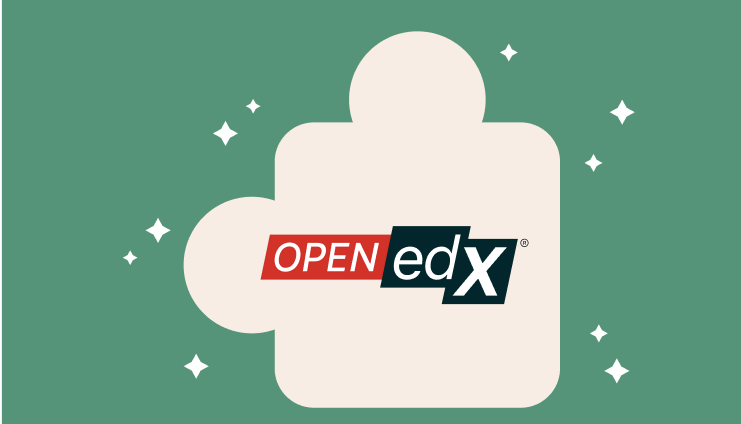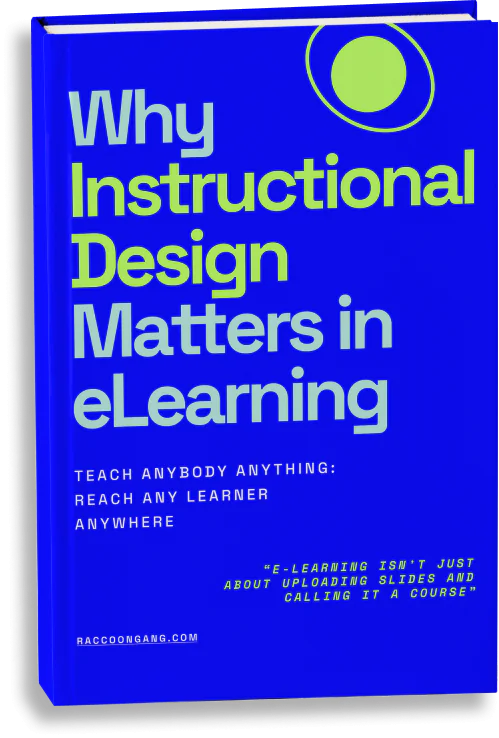Continuing education now links career learners, industry partners, and lifelong learning. We’ll compare implementation options and their impact on universities and learners. UPCEA’s 2025 report shows an 8% rise in collaboration with other academic units for workforce-aligned programs. Let’s explore it step by step.
The Meaning of Continuous Education for Universities
Continuous education goes beyond traditional academic structures, offering a lifeline for universities to stay relevant and thrive. It encompasses a spectrum of learning opportunities, from short courses to online degrees, catering to a diverse audience of lifelong learners. For universities, it’s a strategy to expand their horizons, reach new demographics, and tap into the ever-evolving educational market.
Advantages of Implementing Continuous Education
Universities that choose to implement continuing education today are making a significant contribution to their own future. No hyperbole. Let’s take a look together at how universities can teach, grow, and connect.
1. Increased Revenue:
- Continuing education brings a steady income through course fees.
- It opens access to working professionals and adult learners.
- New markets mean new, reliable revenue streams.
2. Enhanced Reputation:
- Offering flexible programs shows a forward-thinking mindset.
- It positions the university as adaptable and innovative.
- This boosts trust among students, partners, and employers.
3. Diversified Offerings:
- Short courses and certificates keep programs fresh.
- Learners can upskill quickly and stay engaged.
- It attracts both new and returning students.
4. Stronger Alumni Connections:
- Graduates return for new learning opportunities.
- It keeps them connected and invested in the university.
- Every course strengthens long-term relationships.
5. Additional Benefits:
- Regional workforce impact via short, industry-aligned upskilling.
- Alumni lifetime learning flywheel (invite grads back for micro-credentials).
- Stackable pathways improve persistence and re-entry.
Illustrating Continuous Education Solution in Practice
Discover how our partnerships with various universities have led to tailored solutions that can fuel growth, enhance learner engagement, and pave the way for academic success. Take the next step by visiting our page on Continuous Education Solution for Universities.
Dr. Emily Carter’s Quest for the Perfect University Solution
Meet Dr. Emily Carter, the driving force behind academic excellence at her university. As the Dean of Academic Affairs, Dr. Carter’s role extends beyond administrative duties; she is a visionary educational leader passionate about advancing education. With a Ph.D. in Education and years of experience, she understands that the future of higher education lies in its ability to adapt to the ever-changing demands of learners and industries.
Aspirations for Continuing Education
Dr. Carter’s aspirations for her university are nothing short of transformational. She envisions a learning environment that embraces continuous education as a cornerstone of growth. Her mission is clear: to provide diverse, high-quality education programs that attract and engage lifelong learners, working professionals, and alumni.
Choosing the Right Path for Continuous Education
Dr. Emily Carter, the Dean of Academic Affairs, is at a turning point — deciding how to introduce continuing education at her university. Like many institutions today, she’s weighing what matters most: flexibility, speed, or control in shaping a program that truly works for learners and faculty alike.
Below, we review the three main options she’s considering.
Option 1. Independent LMS Implementation
Creating your own LMS gives your university complete control and long-term independence. Before you redesign programs, confirm that your university runs on the best LMS for higher education that your budget and strategy can support.
- Full Customization — Build exactly what you need, from course structure to data dashboards.
- Personalized Learning — Design a unique experience that reflects your institution’s teaching approach.
- Long-Term Savings — Skip recurring license fees from external vendors.
- Strong Brand Identity — Keep your visual style and tone consistent across all programs.
- Total Ownership — Stay in control of updates, integrations, and feature evolution.
“Independent LMS development can be rewarding but risky. Many universities underestimate the time and cost needed for custom platforms. We advise planning carefully — a structured, phased approach ensures sustainable success for your continuing education programs.”
— Raccoon Gang’s Expert View.
Option 2. Third-Party LMS Adoption
Using an existing LMS helps universities start faster and focus on teaching instead of development.
- Quick Launch — Deploy programs without months of setup or coding.
- Lower Technical Load — No need for a large IT or development team.
- Reliable Vendor Support — Regular updates and helpdesk assistance.
- Predictable Costs — Know your annual budget with clear licensing fees.
- Built-In Tools — Get access to analytics, integrations, and templates from day one.
“Third-party LMSs work well for quick launches. But later, flexibility often disappears. Many universities get stuck with limited customization and data access. Check if the platform truly fits your long-term vision.”
— Raccoon Gang’s Expert View.
Option 3. Online Course Marketplaces
Partnering with online marketplaces (like Coursera, edX, or Udemy) has offered universities quick reach in the past — and continues to provide speed and scalability today without heavy investment.
- Global Reach — Instantly access a large international learner base.
- Fast Scaling — Expand your catalog without building infrastructure.
- Lower Development Costs — Focus your budget on creating high-quality courses.
- Marketing Included — Marketplaces handle much of the promotion for you.
- Broad Audience Diversity — Attract learners from various industries and backgrounds.
“Marketplaces make it easy to start but hard to stand out. Limited branding and revenue sharing can erode your institution’s identity and financial control. If used strategically, however, they’re a powerful channel for testing new markets.”
— Raccoon Gang’s Expert View.
Choosing the Ideal LMS for Continuous Learning
Picture this: Emily Carter envisions a continuous education platform that seamlessly integrates with her university’s systems, offers a wealth of content possibilities, and fosters engagement among students. Dr. Carter’s vision of enhancing continuous education at her university aligns well with Option 1: Independent LMS Implementation.
Why Is Independent LMS Implementation the Best Choice for Dr. Carter?
- High Customization Needs: Dr. Carter seeks extensive customization to align the LMS precisely with her university’s unique needs.
- Long-Term Cost Control: While the initial investment for independent LMS implementation may be higher, it offers long-term cost control by avoiding recurring licensing fees, aligning with Dr. Carter’s budgetary considerations.
- Complete Control and Ownership: Independent LMS implementation ensures total control and ownership over the platform’s features, branding, and user experience.
When Content Alone is not Sufficient
When it comes to LMS for continuing education, Dr. Carter’s colleagues often say that the main thing is content, questioning the need for significant LMS investments. However, it’s essential to recognize that a suitable higher education LMS enhances the very essence of content delivery. It empowers universities with flexibility and a rich toolbox for content creation and delivery.
Institutions can experience content liberation rather than confinement with a robust LMS solution. The flexibility to utilize various content types, including text, video, interactive assessments, and simulations, ensures that continuous education programs remain engaging and adaptable to the diverse needs of modern learners.
Furthermore, the right LMS enhances student interaction, fostering dynamic discussions, collaboration through forums and group activities. It serves as an engagement hub, seamlessly connecting educators and learners. Integration capabilities are also crucial, with integration with AI-driven tools like GPT chat and virtual labs, enabling practical, hands-on learning experiences, enriching continuous education programs for real-world challenges.
Challenges Faced Without an LMS
The Crucial Role of the Right LMS Solution in Continuous Education
To realize her vision, Dr. Carter recognizes the critical importance of finding the right LMS solution. This solution must align with her university’s objectives and cater to the unique demands of continuous education. It should offer ease of implementation, intuitive user interfaces, customization options, and robust analytics. Such an LMS will not only streamline administrative processes but also enhance the overall learning experience for her diverse audience.
Let’s explore various LMS options, including Open edX, Moodle, and Canvas to help Dr. Carter make an informed decision for her university’s continuous education success.
Open edX
| Advantages: | Disadvantages: |
| Open-Source and Customizable: Open edX is open-source software, providing the flexibility for universities to customize the platform extensively to meet their specific needs. | Complex Setup: Implementing Open edX can be complex, requiring dedicated technical expertise and resources. |
| Robust Learning Tools: It offers a wide range of tools for content creation, including text, multimedia, and interactive assessments, making it suitable for diverse course types. | Maintenance and Updates: Universities must ensure ongoing maintenance, security updates, and feature enhancements, which may demand additional resources. |
| Community and Support: Open edX has a strong global community of developers and educators, ensuring continuous support, updates, and the availability of various extensions. |
Moodle
| Advantages: | Disadvantages: |
| Open Source: Moodle is open-source, allowing universities to customize the platform to their requirements. | Limited Out-of-the-Box Features: While it’s customizable, Moodle may require additional plugins or development to match the features of other LMSs. |
| Large Community: It has a large user community and extensive documentation, making it relatively easy to find support and resources. | User Interface: Some users find Moodle’s interface less intuitive compared to modern LMSs. |
| Updates and Maintenance: Universities are responsible for ongoing updates and maintenance, which can be resource-intensive. |
Canvas
| Advantages: | Disadvantages: |
| User-Friendly Interface: Canvas is known for its user-friendly and intuitive interface, reducing the learning curve for educators and students. | Lack of Extensive Customization: While Canvas is customizable, it may have limitations in meeting unique institutional needs without significant development. |
| Strong Mobile Support: It offers robust mobile support, allowing students to access course materials and engage in discussions from their devices. | Costs: Canvas is a commercial LMS, so it involves licensing fees, which can add up over time. |
| Dependence on Vendor: Institutions rely on the vendor for updates, support, and feature enhancements. |
Dr. Carter’s choice of independent LMS implementation, with options like Open edX or Moodle, best suits her university’s unique needs for customization, cost control, and full control over the learning platform. It aligns with her vision of transforming continuous education at her institution.
Why Open edX Excels for Continuous Education
Dr. Carter’s journey to discover the perfect LMS for her university led her to a pivotal decision: Open edX. This choice wasn’t arbitrary; it was based on the multitude of advantages that the Open edX platform offers, aligning perfectly with her vision of continuous education excellence.
Advantages of Choosing Open edX
Open edX gives universities everything they need to design, deliver, and manage modern continuing education programs. Below are the main reasons Dr. Carter and many other decision-makers choose it.
1. Flexibility and Customization
Open edX lets you shape the LMS around your university’s goals. You can adjust the design, structure, and features to match your brand and academic approach — from course layouts to user roles and permissions.
2. Open edX Studio
With Open edX Studio, you can design and manage courses in one place. Even more, you would build your syllabus, upload content, set grading rules, and manage instructors if you prefer Open edX.
3. Community Support
The Open edX community is one of its greatest strengths. You can join forums, learn from other universities, attend webinars, and get early access to updates. The shared knowledge and resources make collaboration easy and effective.
4. Comprehensive Analytics with RG Analytics
RG Analytics, developed by Raccoon Gang, brings advanced reporting to Open edX. Track student progress, engagement, and performance in real time. These insights help your team make data-driven decisions and continuously improve learning outcomes.
5. Engagement and Motivation with RG Gamification
Keep students motivated with RG Gamification. Features like badges, leaderboards, and progress tracking turn learning into a more interactive and rewarding experience — boosting participation and retention.
6. Mobile Accessibility
Raccoon Gang’s mobile app for Open edX ensures that learning never stops. Students can access materials, submit assignments, and take part in discussions from any device, anytime — ideal for flexible and on-the-go learning.
The Role of an Official Open edX Provider
In her pursuit of the ideal LMS, Dr. Carter recognized the importance of partnering with an official Open edX provider. Companies like Raccoon Gang offer invaluable expertise and services to educational institutions, facilitating the successful implementation of the Open edX platform. With their assistance, Dr. Carter’s vision of a tailored, efficient, and engaging continuous education platform becomes an attainable reality.
By choosing Open edX and leveraging the capabilities provided by an official provider like Raccoon Gang, Dr. Carter sets her university on a path to continuous education excellence.
Conclusion
As we conclude Dr. Emily Carter’s quest for the perfect Learning Management System (LMS), her journey serves as a guiding light for universities navigating the dynamic landscape of continuous education. Her vision and determination to elevate her institution’s learning experience led her to explore various paths, each with its own set of advantages and challenges.
In the end, Dr. Carter’s choice of independent LMS implementation, specifically utilizing the Open edX platform, prevailed. This decision was driven by the flexibility, customization options, and the additional benefits provided by Raccoon Gang’s RG Analytics and RG Gamification. The ability to tailor the platform to her university’s unique needs, coupled with the power of data-driven insights and engagement features, made Open edX the ideal choice.
Dr. Carter’s story isn’t just about her institution; it’s a testament to the importance of continuous education in today’s academic landscape. It’s a journey of embracing the future of learning and staying relevant in an ever-evolving world.
Ready to Transform Your University’s Continuous Education?
If Dr. Carter’s path resonates with your university’s ambitions, it’s time to take the next step. Contact Raccoon Gang today and embark on your own journey to enhance continuous education. Our expertise and the capabilities of Open edX can help you create a tailored, efficient, and engaging learning environment that empowers your institution and learners alike.











